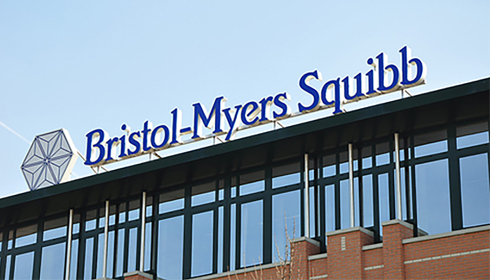
Bristol Myers Squibb's approval for dual immunotherapy marks a new era in oncology treatment
In a major development, Bristol Myers Squibb has reported a significant milestone in cancer treatment. It was approved by the European Medicines Agency (EMA) that Opdivo (nivolumab) and Yervoy (ipilimumab) can be used as a first-line treatment for adults with advanced or unresectable hepatocellular carcinoma (HCC) who have not previously been on systemic therapy. This validation signals the start of the EMA's centralized procedural evaluation, which represents a paradigm shift in oncology therapy.
The European Union detects approximately 62,000 cases of liver cancer annually, with HCC being the most common type. Despite recent treatment advances, the prognosis for patients in more advanced stages remains poor, emphasizing the need for therapies with better clinical outcomes," stated Dana Walker, M.D., M.S.C.E., vice president and global program lead for gastrointestinal and genitourinary cancers at Bristol Myers Squibb. "We look forward to working with the EMA to advance our application for Opdivo plus Yervoy to provide a new first-line dual immunotherapy combination treatment option for adult patients with unresectable or advanced hepatocellular carcinoma in the European Union."
The application is based on the results of the Phase 3 CheckMate-9DW study, which showed that Opdivo and Yervoy improved overall survival (OS) more than the researchers' preferred drugs, lenvatinib or sorafenib. This improvement was statistically significant and clinically relevant. This study demonstrated the therapeutic benefits of the combination treatment in the first-line scenario, with a safety profile that was consistent with previously reported results and manageable under known guidelines. There were no new safety signals detected. The 2024 American Society of Clinical Oncology (ASCO) Annual Meeting featured the findings of this crucial study.
Bristol Myers Squibb thanked the patients and researchers who took part in the Phase 3 CheckMate-9DW clinical trial. This was an open-label, randomized study that compared Opdivo plus Yervoy to lenvatinib or sorafenib alone in people with advanced or unresectable HCC who had not previously received systemic therapy. The trial's primary outcome was overall survival, with crucial secondary objectives being objective response rate and time to symptom deterioration.
Often discovered at an advanced stage, hepatocellular carcinoma, the most common type of primary liver cancer, accounts for 75% to 85% of all liver malignancies and offers few effective treatment options. Liver cancer is still the third-leading cause of cancer death globally, with a recurrence rate of up to 70% within five years for those at high risk, even after surgery or ablation. The growth in metabolic syndrome and nonalcoholic steatohepatitis (NASH), as well as hepatitis B and C infections, all contribute to an increase in HCC incidence.
The EMA's approval of this application marks a new era in cancer treatment, providing hope to patients with advanced liver cancer and potentially defining a new standard in oncology care.